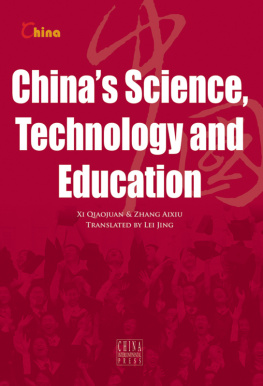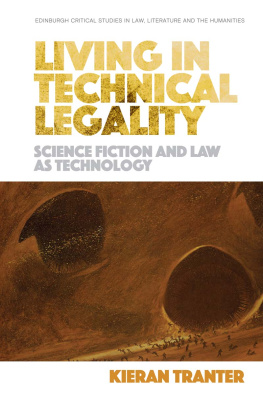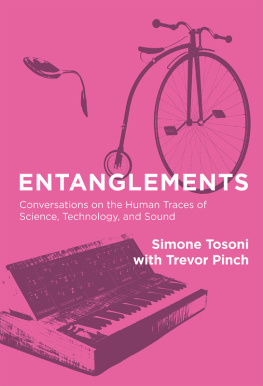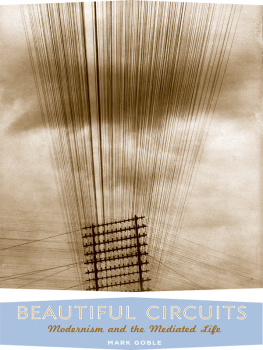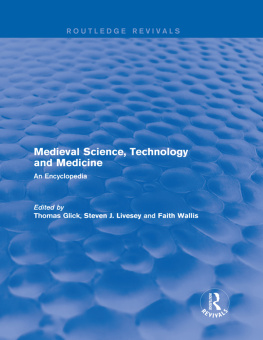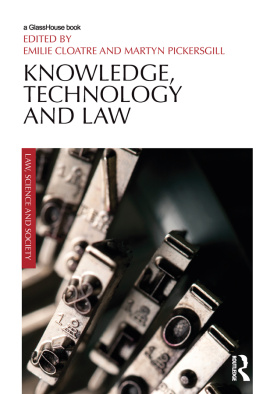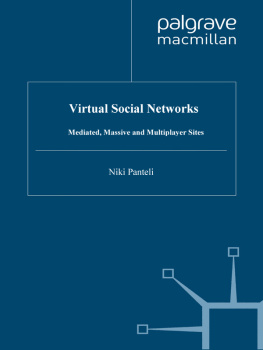History and Foundations of Information Science
Edited by Michael Buckland, Jonathan Furner, and Markus Krajewski
Human Information Retrieval by Julian Warner
Good Faith Collaboration: The Culture of Wikipedia by Joseph Michael Reagle Jr.
Paper Machines: About Cards & Catalogs, 15481929 by Markus Krajewski, translated by Peter Krapp
Information and Intrigue: From Index Cards to Dewey Decimals to Alger Hiss by Colin B. Burke
Indexing It All: The Subject in the Age of Documentation, Information, and Data by Ronald E. Day
Bibliometrics and Research Evaluation: The Good, the Bad, and the Ugly by Yves Gingras
Search Foundations: Toward a Science of Technology-Mediated Experience by Sachi Arafat and Elham Ashoori
Search Foundations
Toward a Science of Technology-Mediated Experience
Sachi Arafat and Elham Ashoori
The MIT Press
Cambridge, Massachusetts
London, England
2019 Massachusetts Institute of Technology
All rights reserved. No part of this book may be reproduced in any form or by any electronic or mechanical means (including photocopying, recording, or information storage and retrieval) without permission in writing from the publisher.
For information about special quantity discounts, please email
special sales@mitpress.mit.edu.
This book was set in Stone Serif by Westchester Publishing Services. Printed and bound in the United States of America.
Library of Congress Cataloging-in-Publication Data
Names: Arafat, Sachi, author. | Ashoori, Elham, author.
Title: Search foundations: toward a science of technology-mediated experience / Sachi Arafat and Elham Ashoori.
Description: Cambridge, MA: The MIT Press, [2018] | Series: History and foundations of information science | Includes bibliographical references and index.
Identifiers: LCCN 2017061372 | ISBN 9780262038591 (hardcover: alk. paper)
Subjects: LCSH: Information science. | Information retrieval.
Classification: LCC Z665.A69 2018 | DDC 020dc23 LC record available at https://lccn.loc.gov/2017061372
d_r0
To my parents and teachersSA
For Mohsen and RoshanakEA
Ars Sine Scientia Nihil Est
Jean Mignot (14c.)
Contents
- 2.4.2External Coherence and Foundations Discourse
- 5.2.3Identity and the Concept of Information
List of Figure
A depiction of the main observers and their observation contexts
Preface
The idea for this book began in the Senior Common Room at the Imperial College in the summer of 2011 as we acknowledged our mutual dissatisfaction with the course of research in information retrieval and science (IR&S). But this was a relative dissatisfaction brought on by our attempt to measure information retrieval against the mature science of quantum mechanics.
Our then-recent engagements in projects adapting ideas from quantum theory to information retrieval had left us with questions of a conceptual, philosophical, and a rather inconvenient type. What then proceeded was a type of nonlocal collaborative research that was wholly new to us. It was intense, sustained argumentation, based on closely reading texts, that lasted more than five years, and involved conflicting perspectives: Ashooris flavored by a strong technical and engineering inclination (as is common to information retrieval) and Arafats by a philosophical and humanistic bent (common to information science). The topics included specific foundations questions, questions whose answers are presumed by IR&S research discourses, ranging from those about what a user, document, or query is, to more general questions about disciplinary identity and progress. In particular, the argumentation centered increasingly on the text of the notes that we developed through a type of deep syntopical reading of works across disciplines from which ideas were being appropriated to address the aforementioned questions. These notes eventually became this book.
An earlier version of these notes representing preliminary discussions was first intended to be presented as a paper for an interdisciplinary workshop on the foundations of IR&S. Its purpose was to argue the need for foundations and then become the first chapter of a wider-ranging, book-length text that would comprehensively detail a new kind of sciencewhich we argued IR&S would need to become for the sake of progress. That workshop never materialized, and that single chapter became this text, whose main purpose is to motivate such a new science. To adequately develop such a science would require a sustained community effort. Much has to be done to persuade a critical mass of scholars to pursue such a task, and then to create such a community; to divert their gaze from the intensely quantitative research programs to what appear to be mere philosophical matters (i.e., the foundations research discussion about progress). As one reviewer suggested, this text can be understood as a sort of manifesto. It is apt to also frame it as a prolegomenon to a new kind of science: a science of technology-mediated experience.
While quantum theory initiated our journey into the foundations of IR&S, the question of progress that became pivotal to our work was a response to what appeared to us an exigency of some tension clouding our professional and intellectual concerns. Do the multitudes of works produced in IR&S conferences and journals add up to take the respective discourses from a lesser state to a greater one, as can reasonably be argued for scientific discourses? Is this question relevant? Perhaps one should not expect technological disciplines to be like the traditional sciences, since the former are more concerned with solving practical problems than progressively discovering more facts about some part of the world. But IR&S researchers do indeed seek to unify theories and frameworks and therefore build up. While IR&S employs technology and is moreover technologycentric, its goal ultimately is to serve humans by means of this technology. This is not something it can do without understanding technology-use with respect to the human subject. Moreover, while rarely made explicit, technological disciplines possess an underlying vision about the kind of world the technologies created therein are supposed to help build; a world that is presumably better than the current one. In this sense, progress in technological discourses appears concomitant with the socio-technical and econo-political development of cities.
Not only did the question of progress thereby appear to lack an immediate or obvious answer, it also opened up a cascade of interrelated questions resembling a mess of tangled wires. Can IR&S be a science? If so, what kind of science? Do we need to first fix what we mean by information before we decide what kind of science it is? How does IR&S relate precisely to information systems or web science? Is this all just about finding a grand mathematical theory? While one could start with any one of these questions, their sheer mass and complexity presents a hindrance, a fear. And while the idea that a philosophical problem has the form: I dont know my way about (Wittgenstein, 2010, p. 123) was comfortingsince the way about was certainly not clear, and since we could now categorize our woes as philosophicalwe were led to numerous inconvenient questions of an intellectual and professional type. Are these problems ours to solve? Should we leave them to the philosophers?
This complex of questionsand their often apprehensive naturecharacterized the difficult yet extremely rewarding journey from which the present text emerged. A journey that began in 2003 with a rather different foundational problem. Where does information retrieval stand among the sciences, with respect to physics and psychology in particular? The nascent allure of this problem was nurtured until 2010 through sustained discussions with several interlocutors, growing eventually into a mess of concerns; our concerns. We were behooved to pursue its address together. The genealogy of this allure is therefore also that of this text.


